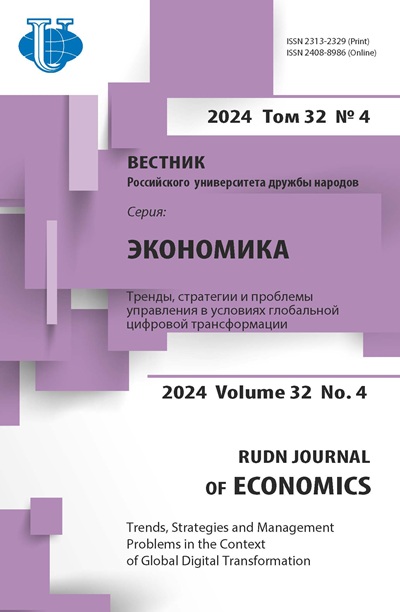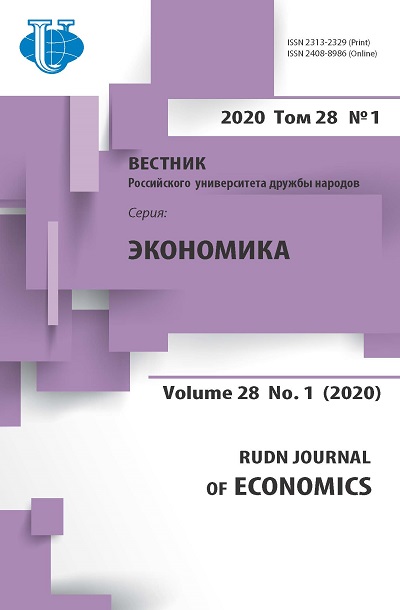Methodological provisions for the formation of an industrial enterprise management system based on the use of its potential
- Authors: Kostyukhin Y.Y.1, Moseykin Y.N.2
-
Affiliations:
- National University of Science and Technology “MISIS”
- Peoples’ Friendship University of Russia (RUDN University)
- Issue: Vol 28, No 1 (2020)
- Pages: 110-122
- Section: ECONOMIC GROWTH AND SOCIO-ECONOMIC DEVELOPMENT
- URL: https://journals.rudn.ru/economics/article/view/23497
- DOI: https://doi.org/10.22363/2313-2329-2020-28-1-110-122
Cite item
















